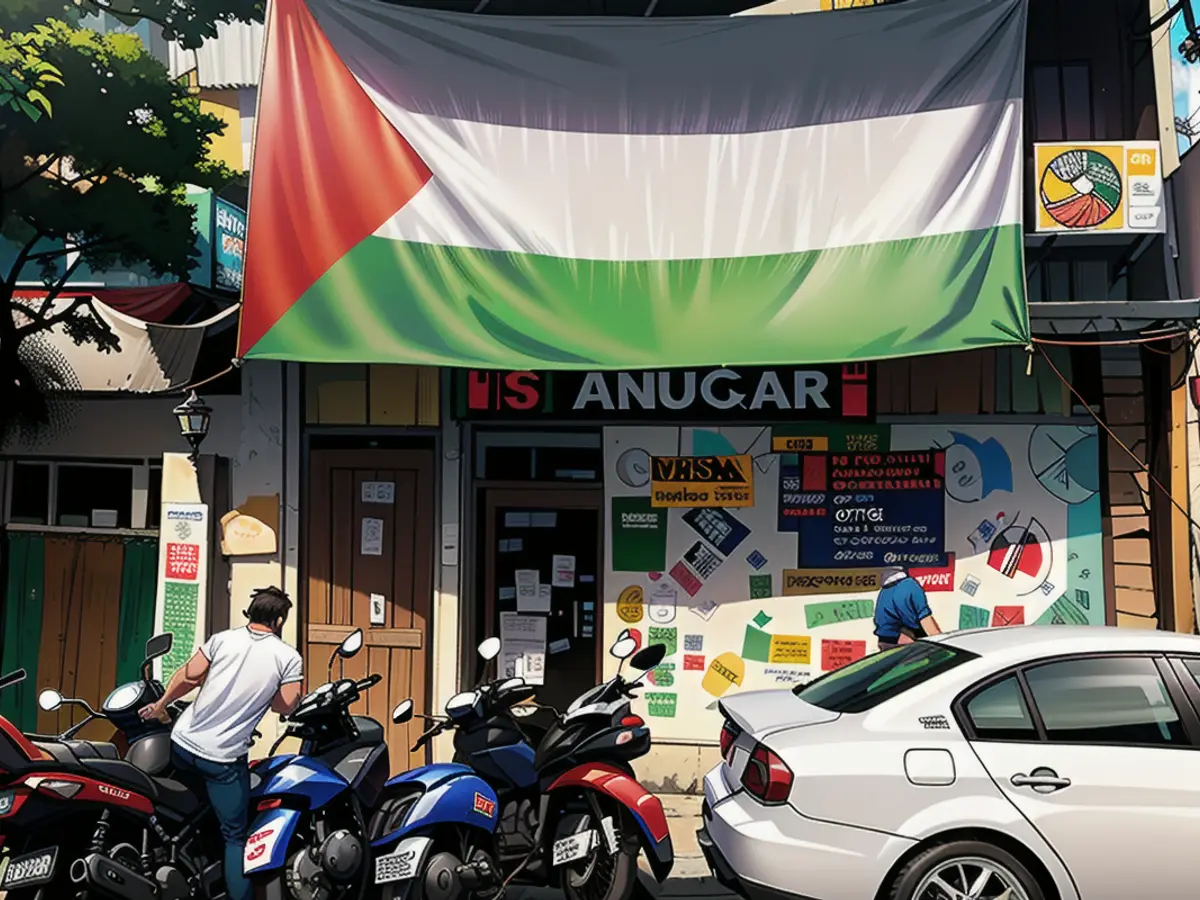Call for Israel Boycott - Why the Maldives Prohibits Visits from Israeli Travelers: Beyond an Island Utopia
The anger towards the violence in Gaza has reached the beautiful island nation of Maldives. This paradise is now prohibiting Israeli citizens from entering the country, but the exact activation of the law is uncertain.
The Israeli government is now advising its citizens to reconsider visiting the Maldives, even if they hold dual citizenship. "Israeli residents currently in the Maldives are urged to consider leaving as we may struggle to help them in case they encounter any issues."
A Separate Island Nation
Many people are shocked by this information concerning the Maldives. While it is known for its beautiful beaches and islands, not many are familiar with this small republic composed of more than 1,000 coral islands strategically located. Tourism is the key industry for the Maldives, and its geography isolates tourist destinations from the rest of the country. The luxurious resorts, however, are mainly run by foreign companies with local partners benefiting from the business.
The Capital City
Among the 1,192 islands in the Maldives, only 199 are inhabited, and 111 of these are exclusively resort islands. The resorts are foreign-owned but require local partners to generate income from tourism. The capital Malé is one of the most crowded cities in the world with an official population of 134,000 people covering 5.7 square kilometers. This translates to about 23,500 people per square kilometer. The true population is likely much higher. Little is known about the influence of criminal gangs in Malé.
The Maldives has faced political unrest before, leading to turmoil and the declaration of a state of emergency. Muslims make up the majority of the population, and their legal system is influenced by Islamic traditions. It is believed that many fighters have joined the Islamic State in Syria.
It is not a surprise that President Dr. Mohamed Muizzu sided with the opposition and the ruling party. The travel ban is not the only action; he also plans a donation campaign for "supporting our brothers and sisters in Palestine" and a nationwide solidarity campaign.
Boycott Trend
This decision does not come as a surprise. The German government's stance on the Gaza conflict is not universal, and campaigns to boycott Israel and its institutions are increasing in various parts of the world. The Muslim islands should have been expected to become part of this movement.
Earlier, boycott calls posed a risk, and every country needed to deal with pressure from the United States. However, the tables have turned, and institutions and companies in several regions are required to justify their relationship with Israel. On the other hand, Israelis are still welcome in the Maldives but make up only a small portion of visitors. They accounted for approximately 0.6% of all tourists who visited last year. So, the financial impact of the ban is insignificant.
The Maldives presents itself as a peaceful paradise, but it is a key player in geopolitics. It plays host to a struggle between India and China. China is constructing its navy at breakneck speed, while India perceives the region as within its natural sphere of influence. The past governments shifted allegiance between these two countries, resulting in a volatile political course.
Mohamed Muizzu was elected president in 2023 with a pledge to reduce Indian influence in the area. His government has shifted from a "India first" policy towards a pro-China one, reflective of his party's majority success in the parliamentary elections on April 21, 2024. In addition to endorsing China over India, the Maldives is also engaged in a territorial dispute with Mauritius over fishing grounds and economic zones.
Read also:
The Maldives' decision to prohibit Israeli travelers is correlated with its support for Palestinian rights, as evident in President Dr. Mohamed Muizzu's plans for a donation campaign and nationwide solidarity campaign. This boycott trend against Israel is gaining momentum in various parts of the world, including Muslim-majority countries. Despite Israel being a small percentage of tourists in the Maldives, the financial impact of the travel ban is considered insignificant. On a different note, the Maldives, often portrayed as an island paradise for tourism, is also a key player in geopolitics, with China constructing its navy and vying for influence in the region.








